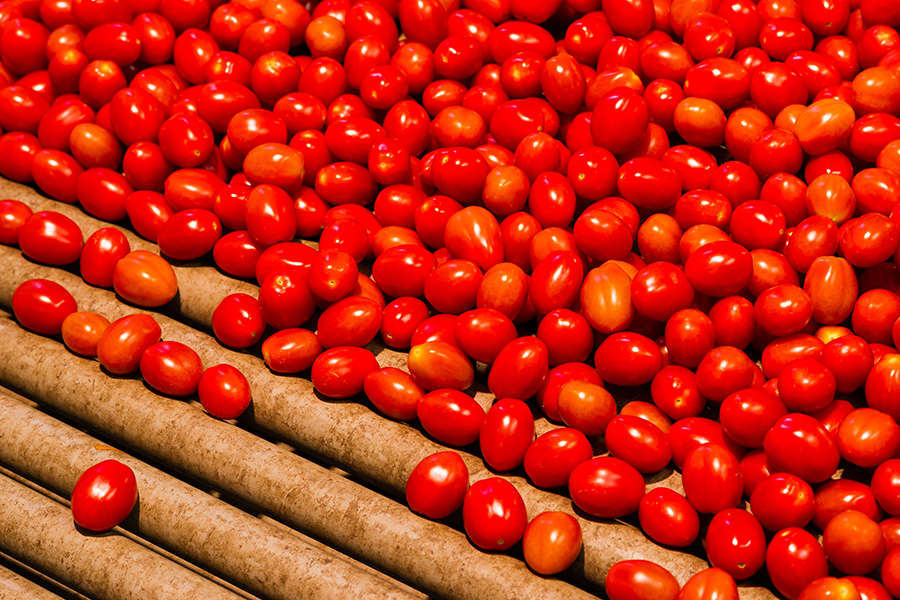Over 1,500 independent and university studies, on 53 different crops, on 6 continents and over a decade in proven commercial success demonstrates that we deliver the four following things:

More Nutrient Dense Food & Improved Quality
One of the most pressing challenges for agriculture is consumers’ demand for higher quality food that is more nutrient-dense, tastes better, and is healthier/safer with more transparency about how it is grown. This demand is changing crop production by putting pressure on the entire value chain.
FBSciences delivers healthier, more nutritious food that tastes better:
- Proven ability to move more nutritious nutrients into fruiting bodies
- Fewer incidences of fruit disorders
- Improved ROI for grower due to more even maturity
- Larger, more consistent fruit size with better color
- Significant improvement in other quality parameters like Brix, relative feed value, protein, starch, and soluble solids

Significantly Healthier Plants & Increased Yields
Growing crops with minimum inputs and expecting maximum output may optimize production costs for the grower, but the plants are not as healthy. Therefore, they can be more susceptible to disease. They also tend to produce food that is less nutrient-dense.
FBSciences delivers not just higher yields, but higher quality yields and less dependency on synthetic chemicals.
- Improved root architecture and increased root mass for better access to water and nutrients
- Increased nodulation and plant biomass
- Faster tree and field crop establishment
- Enhanced plant vigor and chlorophyll density

Stress Mitigation & Recovery
Abiotic Stress
There is a significant need to reduce limiting factors that haven’t been addressed by genetics or crop protection products. FBS technologies and products produce plants that are better able to withstand and recover from stress events like cold, frost, heat, salt, drought, wet soils, and phytotoxicity from fertilizers. These limiting factors can significantly reduce yield by as much as 82%.
FBSciences technologies significantly reduce the effect of abiotic stress, thereby increasing yield.
- Drought – wilting & plant death delayed
- Heat – significant yield increases, increased germination
- Salt – no reduction in yield when salt applied to simulate well water
- Fertilizer toxicity: protects against the phytotoxicity or burn
Biotic Stress
There is a growing demand for products made from softer chemistries. At the same time, integrated pest management (IPM) practices are vital to preventing resistance. FBSciences delivers technologies that help address growing consumer demand for food grown with more sustainable production methods. We know that our technologies have a direct effect on biotic stresses like nematodes, diseases, and weeds. Our naturally derived technologies address a wide variety of biotic stresses, including the need to prevent resistance and preserve active ingredients.

Increased Utilization of Other Crop Inputs
More efficient use of all crop inputs is both an environmental and economic challenge. Fertilizers and chemicals that remain in the soil instead of being taken up and utilized by the plant leach into the water system and cause pollution. To compensate for the inefficiencies of these products, growers purchase and apply higher volumes of fertilizers or chemicals, creating more waste and pollution.
FBSciences delivers increased uptake of various crop inputs like fertilizers, biostimulants, biologicals, and biopesticides. In addition to leaving less of the products in the soil, a synergistic performance benefit can be seen where the cumulative performance is greater than that of the individual products.
FBS technologies improve the environmental impact of other crop inputs while enhancing grower’s economics.
- Increased uptake of nutrients and biostimulants
- An additive effect when FBS technologies are applied with other products, 1+1=3
- Synergistic effects when used with commercial standards
- Improved performance of fungicides, insecticides, and herbicides
